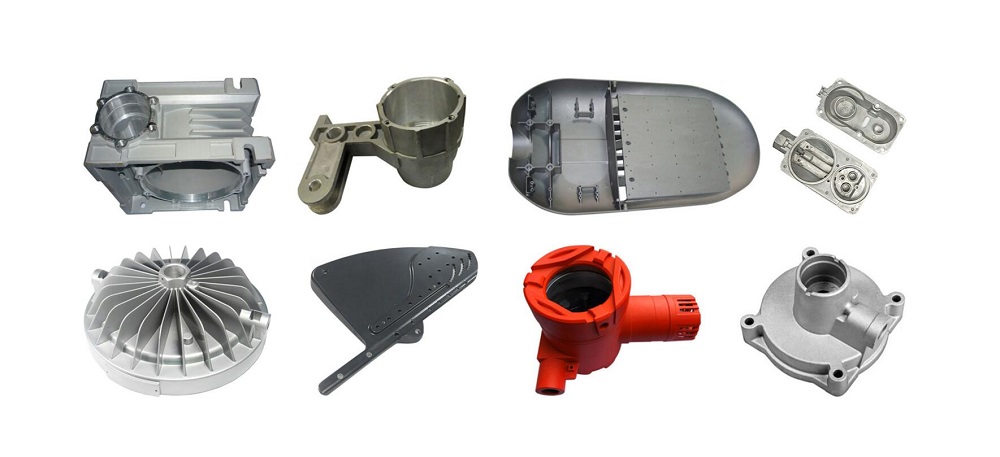In the entire die casting industry, the use of aluminum alloy die castings accounts for the highest proportion. Aluminum die casting parts are mainly used in industries such as home appliances, motors, communications, automobiles, and electronics. Some are also used in parts of aviation, navigation and some equipment. Using die-casting processing, the dimensional accuracy of die casting part is relatively high, the surface finish is relatively good, the strength and hardness are high, and the productivity and material utilization rate are relatively high. There are also some problems in the die-casting process, such as cracks, which requires us to anneal the die-casting mold regularly to eliminate the stress in the cavity, or sometimes there are cracks on the surface of the cavity, the surface is polished to remove cracks. And the mold is preheated evenly.
SCZY conducts one-stop services such as mold manufacturing, die-casting production and subsequent CNC machining in-house to ensure production delivery and product quality. We have a relatively systematic understanding of the die-casting process, can predict the problems that may arise in the die-casting process, and can solve the possible problems in advance.
Aluminum Die Casting,Aluminum Alloy Gravity Casting,Aluminum Engine Parts Die Casting,Aluminum Alloy Engine Parts Die Casting,Aluminum Die Casting Parts Shenzhen SCZY Technology Co.,Ltd , https://www.szsczycasting.com
It is understood that the adjustments made by the state to expand taxation of petroleum products are due to the consideration of promoting environmental protection and saving resources. The consumption tax on automobile tires was adjusted on the basis of the original tax rate, that is, the tax rate for 10% of dumped tires was lowered to 3%; the radial tires continued to implement the tax exemption policy. In addition, the addition of refined oil tax items has become a major highlight of this excise tax adjustment and has also attracted much attention from the industry. In the current consumption tax, petrol and diesel have two tax items for petroleum products. After adjusting this tax item, the scope of the consumption tax for five types of petroleum products has been increased. The specific tax rates are: naphtha, solvent oil, and lubricant oil, with a tax rate (tax) of 0.20 yuan per litre; aviation kerosene, fuel oil, and diesel oil, with a tax rate (tax) of 0.10 yuan per litre. The technology of radial tires is advanced and belongs to products that the country encourages to develop. The country adjusted its policy in 2001, that is, radial tires did not levy consumption tax, and this time the tax exemption policy continues.
The industry has responded to this large-scale consumption tax adjustment. Gu Hongzhen, president of the China Rubber Industry Association, said that the country continues to implement a tax exemption policy for radial tires, providing a better space for the development of radial tires. For more than a decade, the 10% consumption tax has caused the skewed tire companies to be in extreme operating difficulties. Basically, they have lost one item of production, and they have not even had the ability to maintain simple reproduction, let alone updating the technology. In this case, lowering the tax rate is necessary and timely, and it is of positive significance for companies to turn losses into profits and increase accumulation. The Sinopec related sources said that from an industry perspective, the taxation of naphtha, solvent oil and other most of the industrial raw materials, therefore, the excise tax will increase the production costs, the ethylene, chemical and other downstream industries It will be affected. Another industry analyst, petrochemical companies will be affected, in particular, will significantly increase the cost of petrochemical listed companies.

On March 21st, the Ministry of Finance and the State Administration of Taxation jointly issued a circular to adjust the current tariff, tax rate, and related policies of China's current consumption tax from April 1. It is understood that this is an adjustment of the largest scale of consumption tax since the tax reform in 1994, and because it involves taxes on automobile tires, refined oil and other taxes, it has attracted the attention of the petroleum and chemical industries.